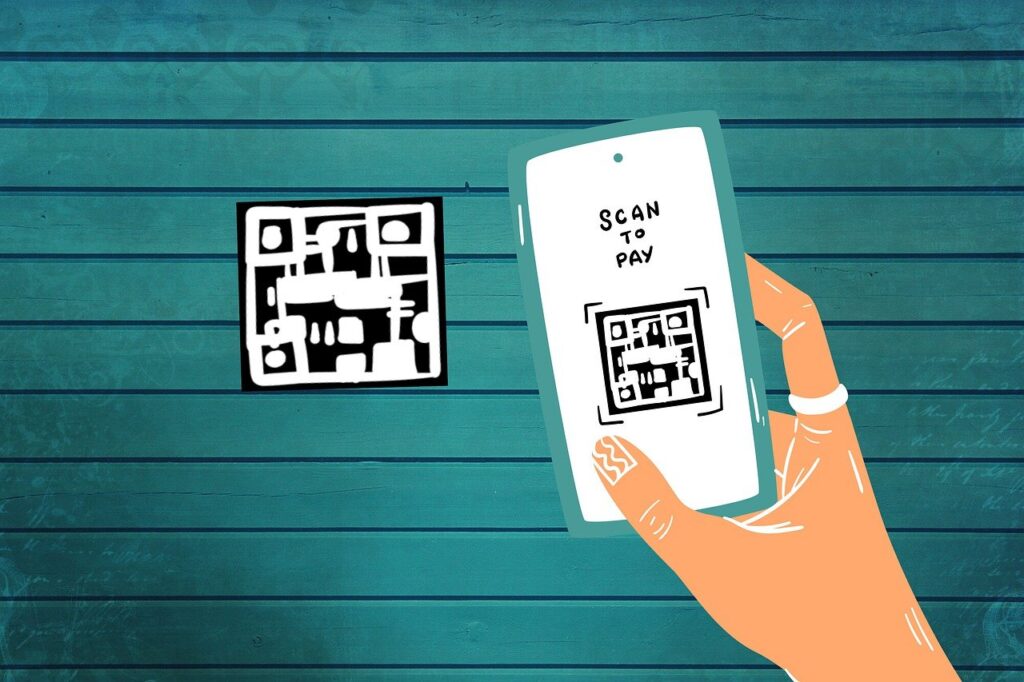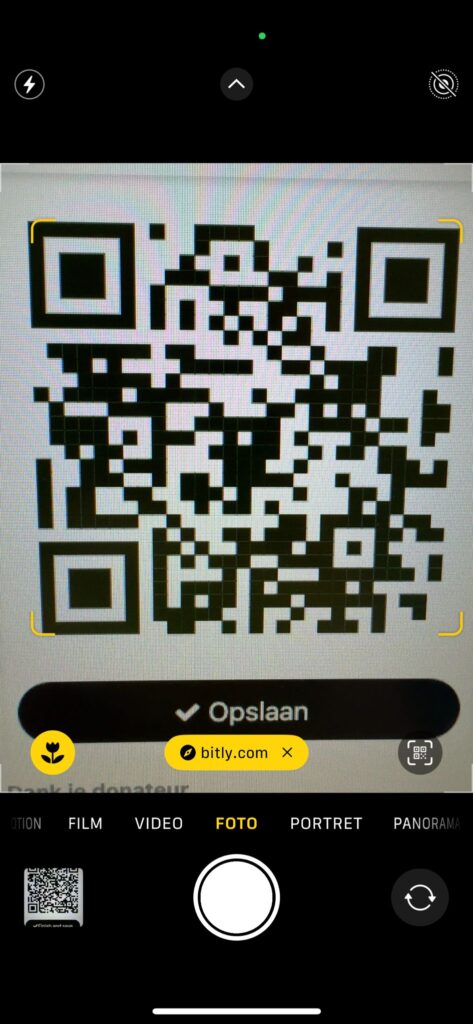QR-code fraud
The number of QR-code fraud cases seems to be increasing. This may be due to the growing use of QR-codes. Just like other types of fraud, QR-code fraud involves cunningly extracting money from people. But what exactly is QR-code fraud? How does it work? And what can you do to protect yourself?
In short
- QR-code fraud is becoming more prevalent.
- It is important to remember that QR-codes are essentially just links disguised as black blocks.
- There are many tips to guard against QR-code fraud, but the most important one is to be vigilant.
What is QR-code fraud?
QR-code fraud can take various forms, but they share one commonality: fraudsters use QR-codes to steal people’s money.
A QR-code serves as the tool for committing fraud. QR-codes can be convenient for fraud because from the outside, you can’t immediately see where they lead. Moreover, many people trust QR-codes because they perceive them as official.
It is important to understand that QR-codes are essentially just links dressed up as black blocks. QR-codes were developed for convenience, but in this case, it works against us. It is crucial to know what QR-codes are and how they work in order to prevent fraud.

How does QR-code fraud work?
Because it takes on many forms, explaining its operation in general terms is challenging. One example is the following scam:
- Someone needs money transferred to their bank account and asks you to do it in exchange for some cash.
- The fraudster asks you to scan a QR-code to complete the money transfer.
- When you scan the QR-code, the fraudster distracts you and diverts your attention away from the screen, so you don’t notice that the amount is much higher than expected.
Another example is a QR-code in a fake email from the “bank”:
- When you scan the QR-code, you are prompted to log in somewhere.
- If you do so, your login credentials are immediately sent to the fraudsters.
- Unbeknownst to you, the fraudsters have obtained your login information.
These techniques may seem superficial, but these fraudsters are cunning and do everything to appear credible.

Be wary of public QR-codes, where another person might have pasted a QR-code on the original one.
How can you protect yourself against QR-code fraud?
Fortunately, there is no need to fear using QR-codes. There are precautions you can take to prevent fraud. It may sound obvious, but the most important tip is to remain vigilant. Fraudsters try to divert your attention from what is happening and exploit people’s willingness to help.
The following questions (provided by ING) can help you stay alert:
- Do I know the person/organization asking me to scan this QR-code?
- Does it make sense for me to scan this QR-code now?
- Am I being pressured to scan the QR-code?
A second tip is that when you scan a QR-code with your camera app, you can see where it leads before actually going to the webpage. If you have doubts about its authenticity, you can decide not to proceed to the page. Shortened links such as those from bit.ly and tinyurl are particularly suspicious because they make it unclear where the QR-code leads.
Always check where the QR-code leads to, as QR-codes are the means and not the end goal.
Ultimately, the advice remains the same: stay alert. While QR-codes are quick and efficient, sometimes it’s wiser to take things a bit slower.

Pop-up that appears on screen after scanning a QR-code. Before you click, read where the QR-code directs to first.
FAQ
A QR-code is an image that can be scanned. The person scanning is sent to what is coded into the QR-code, like a URL or some text. The QR-code consists of ‘blocks’ and a phone or tablet can recognize the unique pattern of those blocks and send the scanner to the corresponding destination.
QR-codes can be created here.
A QR-code is actually just a few ‘blocks’ on a background. So it matters if the page where the QR-code leads to is safe. To protect your online safety, the advice is: pay attention! Read our blog about the prevention of QR-code fraud here.
- A QR-code catches attention;
- QR-codes are efficient;
- QR-codes need very little storage capacity;
- You can gain insight into your customers through QR-codes;
- QR-codes are free on our website!
